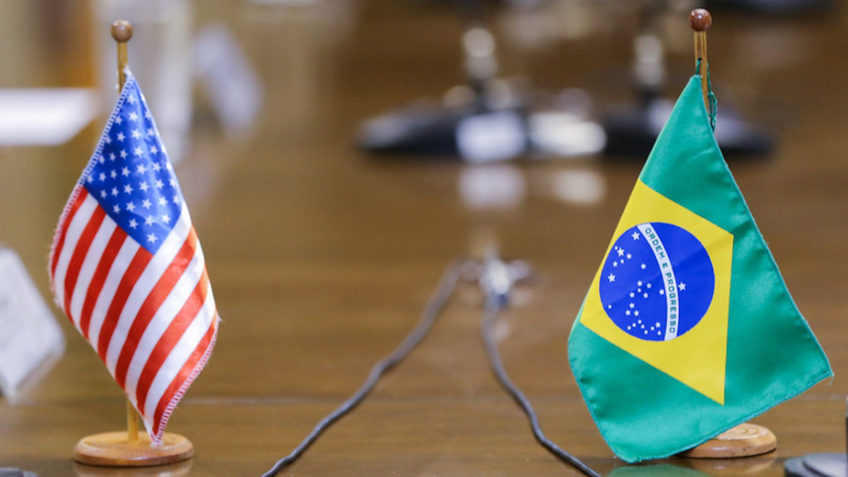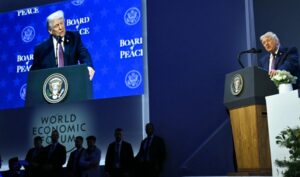
The polarized world has never needed our country so much; now, more than ever, due to the ability to offer quality food on a large scale, writes Marcelo Tognozzi
For 2 centuries, the maxim of the German general Carl von Clausewitz (1780-1831) prevailed, according to which “war is a continuation of politics by other means”. Until, in 2013, a Tatar general named Valery Gerasimov published his theory on state-of-the-art warfare in the Military and Industrial Mail, which circulates primarily among the Russian military. For him, politics is the continuation of war, which has increasingly involved non-military methods and means. Put simply: it is the hidden use of military force.
Gerasimov tested his method in the so-called color revolutions or Arab Spring. More than a decade later, Russia maintains good relations with most of the countries hit by the revolutionary wave from 2010 to 2012. Its doctrine is not based on conventional concepts of killing and destroying the enemy, but on winning hearts and minds, provoking a type of autophagy in which the enemy will be defeated by opponents at home.
This is how the Russians began to act, whether in their social media strategies, with their robot colonies and information and counter-information dissemination centers, or by encouraging the emergence of opponents as in Ukraine. They went to school. What we see in protests at universities North American and European women are manipulated young people defending Hamas, the armed wing of Iran, a mortal enemy of the United States and NATO and an ally of Russia.
In this context, the most interesting political event of the week was, without a doubt, the public hearing that debated Brazilian democracy in the United States House of Representatives. For the first time, since the end of the military regime, almost 40 years ago, we were able to follow a vigorous debate about the direction of Brazilian democracy, censorship, usurpation of power and questions about supposed attacks on democracy on January 8, 2023. Far beyond the polarization Lula–Bolsonaro.
The debate transcended the limits of the National Congress and ended up at the Foreign Affairs Committee of the North American Chamber. The next person to testify will be Elon Muskthe owner of X (formerly Twitter), a self-described defender of freedom of expression who accuses Minister Alexandre de Moraes of persecuting, censoring and prosecuting opponents of the regime without due legal process. It will be another episode in the battle for Brazil.
Who read the Musk biography, a jam with more than 800 pages written by Walter Isaacson, you know he won’t stop there. Musk takes Thomas Jefferson’s thought literally, according to which the tree of freedom must be watered with the blood of tyrants and patriots, because this is its fertilizer.
The battlefield is no longer restricted to our territory. No one should be surprised. The other day, MEPs were discussing in Brussels whether or not there were exaggerations in a Brazil governed by joint venture PT-STF. Spaniard Hermann Tertsch, from the right-wing Vox, spoke saying that Brazil is in a dictatorship. Spanish socialists argue that Lula is the victim of a hate-driven right. There and here it’s the same tune.
Brazil, until then famous for football, the girl from Ipanema and the Sapucaí Carnival, is now known as the darling of international politics. The other day a diplomat from the European Union made an outburst about the unconditional support of Europeans for Lula: “We supported him without restrictions and the first thing he did after winning the election was to change sides and defend the end of the dollar and the euro as global currencies”.
Just remembering: during the 2022 election, both Emmanuel Macron as Pedro Sanchez e Ursula von der Leyen cheered for Lula while Putin, Ali Khamenei and Xi Jinping remained quiet.
Discussing Brazilian democracy in the North American Congress or the European Parliament tends to become a routine from now on. Especially when it comes to regulating social networks or restrictions on freedom of the press and opinion. This is a critical point for Western powers under the NATO umbrella. And it is no coincidence that the Brazilian left talks so much about fake newsa preferred argument when it comes to putting the brakes on social media.
Since World War II, Brazil has become geopolitically relevant due to the raw materials it produces, natural wealth and, now more than ever, its ability to offer quality food on a large scale. This polarized world of ours has never needed Brazil so much.
At the beginning of the 20th century, Russia was conquered by the communists after the 1917 Revolution. Germany emerged from the First World War shattered and, after being humiliated by the Treaty of Versailles, experienced an internal polarization never seen before. Jews were persecuted, in a display of Judeophobia only seen before in the Inquisition and during the period of Emperor Hadrian of Rome, who erased Judea from the map. Judeophobia which, it must be said, is back 100 years later.
The Second World War came and, with it, the battle for Brazil. The United States negotiated with Getúlio Vargas, previously sympathetic to the Germans. They won Brazil and then the war in Europe and Japan. The world emerged from this conflict divided between communists and democrats.
Russia gained the status of a nuclear power capable of rivaling the United States and never before did so many generals govern so many countries at the same time after the victory of 1945. Dwight Eisenhower went to the White House, Peron governed Argentina, Franco Spain, Charles De Gaulle to France and Douglas MacArthur became viceroy of Japan.
The world is very similar to that between the wars. Polarizations sprout like mushrooms in the pasture after rain. The absence of common sense is the new normal. There are conflicts in Europe, the Middle East and the East and tensions between China and Taiwan, South and North Korea, Venezuela and Guyana and Israel and Iran. Hot war in Ukraine and the East. Cold in the Sea of Japan.
In the middle of this shooting is Brazil, the most important country in Latin America. Speaking about the Vietnam War in 1965, Lindon Johnson said that victory would depend on the hearts and minds of the Vietnamese. The Americans lost the war because they were unable to conquer them.
Parodying Rubem Fonseca, we will live in times of vast emotions and imperfect thoughts. It is vital for both sides to win the hearts and minds of our people and anything can happen in this battle for Brazil that is just beginning.
Source: https://www.poder360.com.br/opiniao/a-batalha-pelo-brasil/

